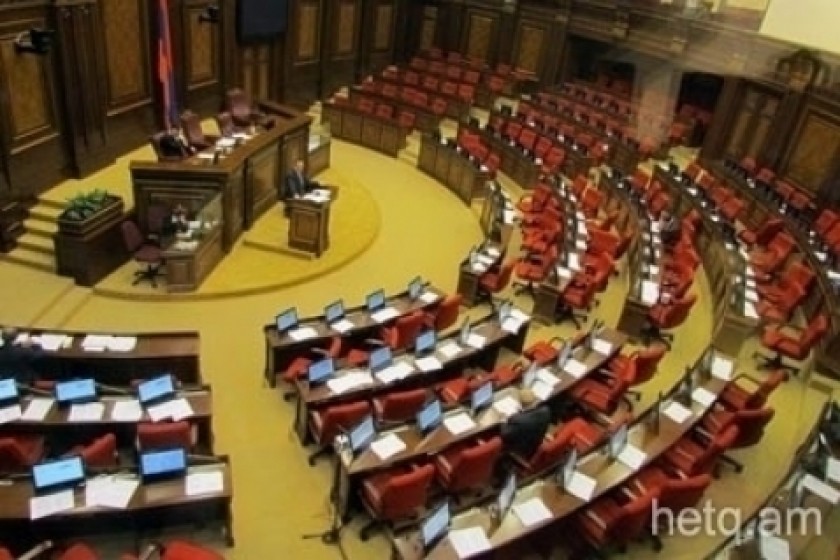
Parliamentary Protocol: The Legal Consequences of Voting in Place of Another Deputy
Last Thursday, the Armenian Government shot down a draft bill calling for criminal charges when a National Assembly deputy votes in the place of another. The Heritage party faction presented the bill.
The Heritage party proposed that the law on "Rules of Procedure of the National Assembly" be altered so that in cases where a deputy voted or registered in place of another deputy, the President of the National Assembly would be authorized to document the violation.
But the government declared that voting in place of another deputy is not an action of criminal intent towards society.
What does the Criminal Code say?
When the results of a vote by the National Assembly are accounted for, the number of votes and how deputies voted on the given issue (law) is recorded. When a vote is made for an absent deputy, the number of deputies voting for, against or abstaining does not correspond to reality.
For example, if a resolution is passed with 75 votes in favor, but in reality only 74 deputies voted for it and one of them also voted in place of another deputy, it should be recorded that 74 deputies voted "for." Yet today, using this example,75 would be recorded.
According to Article 314 ("Official Forgery") of the Criminal Code of the Republic of Armenia, entering false data or records into official documentation is punishable by law.
Therefore, any person can submit a report on a false vote where voting in place of another deputy can be factually proven.
The fate of a passed resolution?
In accordance with Article 71 of the RA Constitution, the laws and resolutions of the National Assembly, save for cases set forth in the Constitution, shall be adopted by the majority of votes of the deputies having participated in the vote provided that more than half of the total number of deputies have voted (67 deputies).
Thus, if voting in place of another deputy transpired during a vote, and it was decisive for the adoption of a law, then one-fifth (27 deputies) of the National Assembly members of parliament should apply to the RA Constitutional Court requesting to revoke the law.
When there are not enough votes for the adoption of a bill, the Constitutional Court declares it invalid.
 Videos
Videos Photos
Photos
Write a comment